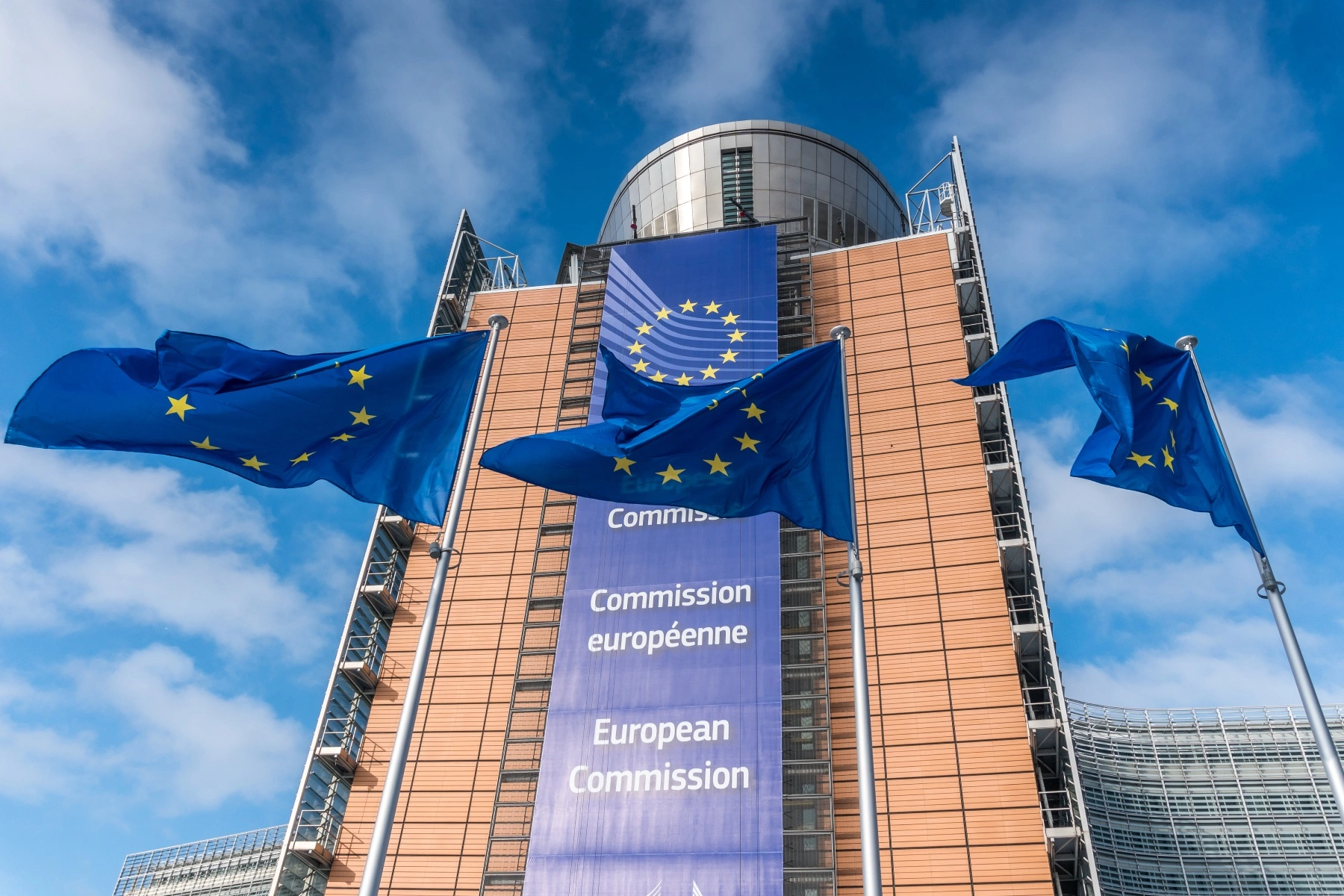Belgium can be a prosperous place for expats, especially within thriving entrepreneurial hubs such as Brussels and Antwerp. However, if you are looking for a job or thinking about starting your own company, it is important to do your research so that you fully understand the local business environment and behavioral practices. That way, you will know how everything works and can adapt your ways accordingly.
So, to help you familiarize yourself with Belgian business etiquette, this article includes the following information:
- Business in Belgium
- What is Belgian business culture like?
- Work-life balance in Belgium
- Belgian business structure and hierarchy
- How diverse is the Belgian workplace?
- Women in the workplace
- Conducting business in Belgium
- Belgian business etiquette
- Do Belgian employees have to pay social security?
- How do Belgian businesses contribute to society?
- Business corruption and fraud in Belgium
- Useful resources
Coursera
Boost your career with Coursera. This online learning platform lets individuals and organizations learn new job-relevant skills. They partner with over 275 leading universities and companies to offer flexible, affordable courses. From hands-on projects to certificates and degree programs, start your learning journey today with Coursera.
Business in Belgium
For a country of its size, Belgium certainly packs a punch when it comes to its economy. Indeed, it is the eighth-largest economy in the EU and home to various European Union (EU) institutions. Its capital, Brussels, is also a powerful entrepreneurial hub.
Belgium has an open and robust economy that has recovered well from the COVID-19 pandemic, with a predicted growth rate of 1.4% in 2024. Although the country’s corporate tax is slightly above EU and global averages (at 25%), it hasn’t deterred international investors, either.

There are around 2,000 multinationals in Belgium, and according to the Organization for Economic Cooperation and Development (OECD), foreign-owned businesses accounted for around 28% of the private sector in 2017.
Belgium also ranks 46th out of 190 nations for ease of doing business in the World Bank’s Doing Business 2020 report. As of 2023, the current employment rate stands at 72.1%, above the OECD average of 69.9%.
Belgium has a highly diversified economy. The service sector accounts for 67.7% of national output. Meanwhile, industry makes up 20.85% and agriculture 0.59%.
Key sectors in Belgium include:
- Financial services
- Food and beverages
- Manufacturing
- Pharmaceuticals
- Scientific and technical
What is Belgian business culture like?
Etiquette and culture vary across the different regions of Belgium and the same applies to the business world. For instance, the business culture in Flanders is heavily influenced by Dutch norms and practices, such as joint decision-making, whereas things are slightly more hierarchical in French-speaking Wallonia.
That said, there are some common traits that you will likely observe when living and working in the country. For instance, Belgian people generally appreciate high levels of openness, egalitarianism, and organization. Indeed, the country ranks 18th out of 180 on the 2022 Corruption Perceptions Index (CPI), with a score of 73/100, indicating that business culture is reasonably honest. Belgians also value punctuality, logic-based decision-making, and equality in the treatment and hiring of employees.
The country’s labor laws grant workers strong protections. Problems and conflicts are usually tackled using reason and compromise. This is useful when it comes to dealing with any cultural differences in a nation in which one-third of its residents are foreign-born.
The Belgian workplace environment tends to be friendly but fairly formal. People prefer to keep their work and private lives separate, which means that there is not a great amount of work-based socializing.
Notably, sustainable development is enshrined in the Belgian Constitution and Corporate Social Responsibility (CSR) is taken very seriously.
Work-life balance in Belgium
Workers in Belgium can expect a reasonable work-life balance. The county scores well for this on the OECD Better Life Index and employers are aware of the effects of overworking on one’s mental health.
Belgians have a good work ethic and believe in switching off from work at the end of the day to enjoy leisure time. And because people prefer to keep their professional and private lives separate, you don’t have to worry about your boss bothering you during evenings or weekends.

Interestingly, Belgium used to have strict laws about working during the night (between 20:00 and 06:00), however, these have recently been relaxed, and working until midnight is no longer prohibited.
Employees in Belgium work an average of 34 hours per week, which is just below the EU average of 35. However, this increases to 49 hours for self-employed workers, which is above the EU average of 46. That said, data from 2022 shows that 9.3% of Belgian employees worked more than 49 per week, which is above the EU average of 7%.
What are typical working hours and spaces in Belgium?
The maximum working week in Belgium is usually 38 to 40 hours. There are also caps on the amount of overtime many employees can work each month. However, the exact amounts vary across the different industries and are often subject to collective bargaining agreements.
Standard business hours are Monday to Friday, 09:30 to 17:00/18:00, with between 30 and 60 minutes for lunch early in the afternoon. Punctuality is highly valued in Belgian workspaces, so it is important to make sure that you arrive on time at the start of the day and don’t extend your lunch breaks.
Holiday entitlements vary depending on the length of service, however, you can generally expect a minimum of 24 days for 12 months of service. You can also enjoy 10 public holidays each year in Belgium, plus other forms of paid leave entitlements such as sick pay and parental leave in most jobs.
Notably, Belgium has adopted more flexible working practices in recent years, particularly in the wake of the COVID-19 pandemic. This includes remote and hybrid working. As a result, employees in many sectors now split their time between the office and home-working. Moreover, the country recently passed a flexible working law allowing workers to condense their hours into four days rather than five.
Belgian business structure and hierarchy
Organizational structure tends to vary across the regions of Belgium. For instance, in Flanders, they are relatively flat and non-hierarchical. The general atmosphere is fairly informal and although overall responsibility remains with senior staff, there is an emphasis on making decisions as a team. Moreover, a good salary is considered to be more important than factors such as job titles and office size.
In contrast, businesses in Wallonia are typically more formal and hierarchical. For example, managerial staff use more traditional leadership styles and job titles carry more status. This is also the case in the German-speaking East region. That said, there is still a high degree of teamwork in most workplaces in these regions, and employees can still expect plenty of independence and autonomy.
How diverse is the Belgian workplace?
Belgium has one of the most diverse and multicultural societies in Europe. This is largely because one-third of the population is foreign-born and companies with large numbers of employees tend to be very international.
The country also has a number of anti-discrimination laws to protect people from unfair treatment on the grounds of sex, age, ethnic origin, religion or belief, sexual orientation, or disability. These laws extend to the workplace, so you can expect your rights to be protected no matter what your background.
Belgium ranks second in Europe on the 2023 Rainbow Map which measures LGBT+ equality. However, although the government has passed legislation to improve disability inclusion, only 41% of working-age people with disabilities are employed in Belgium, which is below the EU average of 47%.
Women in the workplace
Women have equal rights in the workplace in Belgium, as outlined in the Belgian Constitution and the 2007 Gender Act which strengthened the country’s anti-discrimination laws. There is also an Institute for the Equality of Women and Men (IEWM) that works to improve women’s position in several areas including the workplace.

Belgium scores reasonably well in terms of overall gender and labor equality, as follows:
- 8th in the EU on the 2022 Gender Equality Index with a score of 74.2%, rising to 75.5% for work
- 14th out of 146 countries in the Global Gender Gap Report 2022; although this drops to 52nd for economic participation and opportunity
Despite this, there are still barriers to achieving true and meaningful equality in Belgium. For example, women remain overburdened with unpaid work, with 61% reporting that they carried out housework duties on their own, compared with 24% of men, in 2021. Things were slightly less imbalanced when it came to caring for children aged 0 to 11, with 50% of women doing this alone, compared to 39% of men.
Furthermore, women are far more likely to work part-time. Indeed, in 2020, 42.7% of working women in Belgium were in part-time employment, compared to just 12.7% of men. Moreover, only 33% of men chose to take parental leave that same year.
Female representation in the workplace
In 2019, around two-thirds of working-age women (66.5%) were in employment in Belgium, which is slightly lower than the EU average of 68.2%. However, the gap between men and women is smaller in Belgium, where 74.5% of working-age men are in employment, compared to the EU average of 79.6%.
Despite current legislation surrounding equality and the fact that women outperform men in education in Belgium – making up 61.5% of tertiary education graduates – senior-level jobs are still dominated by men. For example, women make up just 37.9% of board members, and less than one-fifth (17.9%) of Belgian firms have female top managers. Additionally, only one-tenth (11.8%) have female majority ownership. As a result of this, Belgium ranks 46th for women’s labor force participation rate in the Global Gender Gap Report 2022 but falls to 70th place for women in senior positions.

However, the scales are slightly more balanced when it comes to politics in Belgium. For instance, in 2023, women represented 42.7% of lower house and 45% of upper house positions in parliament. Nevertheless, Belgium still ranks 22nd out of 187 countries when it comes to the percentage of women in national government.
In terms of higher education, Belgian women are over-represented among university graduates in the following subjects:
- Arts and humanities
- Education
- Health and welfare
- Journalism
- Social sciences
However, they are under-represented in:
- Information and communication technologies (ICT)
- Manufacturing and construction
- Science, technology, engineering, and mathematics (STEM)
- Vocational training
The gender pay gap
According to EU data, Belgium has the fifth-lowest gender pay gap among member states in 2021. The gap stood at 5% that year, which was below the EU average of 12.7%.
Belgium’s government also passed a law to tackle the pay gap in 2021. In addition, the Institute for the Equality of Women and Men (IEWM) has done a lot of work around the gender pay gap in Belgium including looking into possible causes and how to reduce it.
According to their research, 49% of the pay gap can be explained on the basis of the different positions of men and women in the labor market. For example, more women work part-time or occupy lower-status roles.
The remaining 51%, however, is due to a range of factors including hidden mechanisms, prejudices, and stereotypes. For instance, similar roles are sometimes given different titles and pay scales. Moreover, companies are not always transparent about salaries, which means that employees may not know what their colleagues earn.
The IEWM also found that the pay gap increases in Belgium as women have more children.
Attitudes to women in the workplace
Attitudes towards women in Belgian workplaces are generally respectful and progressive, which reflects overall opinions about women’s rights and gender issues. The country scored reasonably well in a 2023 study on attitudes towards gender equality, with only 18% of Belgians believing that a man who stays at home to look after his children is less of a man compared to a global average of 25%.
That said, workplace sexism and prejudice towards women still occur in Belgium, with some reports suggesting that sexist attitudes remain widespread. This can include anything from sexist comments and stereotyping to hidden biases against women when it comes to hiring and promotion. Unsurprisingly, this is more of an issue in male-dominated fields and among older male workers.
Sexual harassment and bullying can also be a problem. Indeed, one study in 2021 found that 64% of Belgian women aged 16 to 69 have experienced sexual violence at some point during their lifetime. Notably, Belgium amended its gender, discrimination, and welfare laws in May 2023 to offer more protections to those reporting violence, bullying, or harassment in the workplace.
If you experience gender-based discrimination or unfair treatment at work in Belgium, you should speak to your employer straight away. You can also contact the IEWM to report the problem. For violence or physical/sexual harassment issues, you can call the emergency hotline at 1712.
Conducting business in Belgium
Business strategy, planning, and decision-making
Generally speaking, Belgian businesses pride themselves on being highly organized. Therefore, you can expect to have plenty of meetings, reports, reviews, and appraisals, and things will run according to periodic plans, which are usually three or five years. This is especially true of larger organizations.
On the flip side, decision-making is typically slow and pragmatic. This is because businesses like to explore all available options and assess risks which means that they often won’t commit to something until they are sure it is worthwhile. Moreover, decisions often involve staff members from multiple levels of seniority, especially in the Flanders region, which can make the process longer. That said, responsibility ultimately rests with top-level senior staff.
In Belgium, business meetings are typically planned weeks, or sometimes even months, in advance. It is also standard practice to confirm everything in writing, including things like meeting dates and the agreed outcomes of any discussions.
Business meetings and negotiations
The Belgian negotiating strategy revolves around compromise. Indeed, they are skilled negotiators and will build a fair degree of flexibility into their strategy to achieve a favored outcome. Logic, reasoning, and consensus rule the day. Conversely, leaders who are stubborn, outspoken, and stick to their guns are rarely seen in Belgium.
Business in Belgium is very meeting-oriented and people generally prefer to do things face-to-face rather than on the phone or via email. Therefore, you can expect to spend plenty of time at both internal and external gatherings. The best time to arrange meetings is mid-morning or mid-afternoon.
The purpose of business meetings is to discuss ideas at length before reaching a decision. They tend to be clearly structured with defined agendas and times. However, they can also be long-winded and often include a lengthy 15 to 20-minute introductory period where people network and engage in small talk.
Notably, because everything gears towards consensus in Belgium, companies can sometimes be slow to change or take on board new ideas. That said, they are certainly not averse to innovation. You just need to make sure that your ideas are underpinned with sound logic. Therefore, be sure to do your research.
Business networking in Belgium
Networking is a very important aspect of doing business in Belgium, particularly in cities such as Brussels which is one of Europe’s thriving hubs for entrepreneurs and startup businesses. As a result, you will find many business events, conferences, and job fairs across the country. Notably, many key events take place at the Brussels Expo, which is one of the biggest trade exhibition spaces in Belgium.
If you are looking to improve your networking credentials in Belgium, you can also reach out to the following organizations for support and advice:
- American Chamber of Commerce in Belgium
- Belgian Chambers of Commerce
- European Professionals Network – based in Brussels
- Professional Women International (PWI) – a Brussels-based multi-national forum for women in business
Do work colleagues socialize in Belgium?
As mentioned, you can expect to see a very clear divide between people’s professional and private lives in Belgium. As a result, socializing with colleagues or going on away days is not a common part of Belgian business culture. Moreover, if you do happen to befriend a colleague and meet up with them privately, you should avoid talking shop as this is generally considered to be poor business etiquette.

That said, business may sometimes be conducted over a lunch, although these tend to be fairly formal and shorter than they might be in some other countries. And although Belgium has a rich beer culture, business lunches don’t usually involve much alcohol.
If you are invited to a business meal, it pays to keep Belgian etiquette in mind. For example, it is best to wait for the host or senior person to direct you to your seats and let them lead the way when it comes to starting the meal or raising a toast.
Belgian business etiquette
Communication
The typical Belgian business greeting is the handshake. However, once the relationship has evolved, three kisses on the cheek may replace this. That said, most men tend to stick to the handshake.
Conversation can become friendly and informal in Belgium workplaces, but the important thing is to always show good manners. For instance, when conducting business, Belgians use the personal pronoun vous/u to address one another and only switch to the informal tu/je, or first names, when invited. However, unlike in some European countries, it is not necessary to use academic or professional titles.
Suitable conversation topics include sports, cuisine, art and culture, and local history. Those to avoid, on the other hand, include sensitive topics such as politics, religion, or personal wealth. You should also make sure that you address people in their native language, or use English if it is an option. Notably, you should also avoid speaking French to people in Flanders or Dutch to people in Wallonia as this may cause offense.
When it comes to body language, Belgian business etiquette is fairly simple. You should try to maintain good eye contact and smile, and avoid being too animated with gesticulations. However, that doesn’t mean standing with your hands in your pockets as that is not seen as polite, either. Another thing to keep in mind is that Belgians aren’t particularly touchy-feely. That said, occasionally touching people on the arm or gently patting their back or shoulder is seen as acceptable.
Dress code
The business dress code in Belgium ranges from smart attire to conservative casual clothing, depending on where you work. For office jobs, men usually wear dark suits, shirts, ties, and smart shoes, while women wear business suits, dresses, or skirts with blouses. It is also acceptable to wear lighter, paler clothing in the warmer months.

If your workplace doesn’t have a strict dress code and you are not sure what to wear, it is best to stick to smart casual clothing in subtle pastel colors. You should also avoid wearing ripped or dirty garments, anything that is too bright or revealing, or tops bearing slogans that might cause offense.
If you happen to receive an invite to a colleague’s home for a business-related occasion, you don’t necessarily need to dress up, but again, you should avoid untidy or dirty items of clothing.
Gift-giving
It is not common Belgian business etiquette to bring gifts to meetings. However, if you do want to, it is best to stick to modest gifts such as chocolates, flowers, or souvenirs from your home country.
You should also avoid gifting alcohol, flowers associated with romance or funerals, and anything bearing your own company logo.
Notably, it is customary in Belgium to open business gifts immediately in front of the giver.
Business cards
Business cards are a common feature in Belgium and people usually present them when meeting colleagues for the first time. Cards should state your name, job title, academic title (if relevant), and the company you work for.
Translating them into either French or Dutch is good Belgian business etiquette and shows that you understand and respect your colleagues’ linguistic heritage. Notably, if you intend to have frequent meetings in both French and Dutch-speaking regions of the country, or in the bilingual capital, it is advisable to have them printed in both languages. Just make sure you use the correct ones!
Do Belgian employees have to pay social security?
The majority of employees in Belgium pay mandatory social security contributions that cover a range of benefits. This is usually just over 13% of their monthly salary. Their employers then pay double this amount on top. Self-employed workers also have to make social security contributions, however, they don’t have anyone to share the payments with.
Social security payments in Belgium cover the following:
- Maternity and paternity benefits
- Pensions
- Sickness and invalidity insurance
- Unemployment benefit
People also pay into health insurance funds in Belgium, however, this is not part of the standard social security scheme. In addition to this, many larger companies offer private pensions and health insurance plans which workers can usually opt in or out of.
How do Belgian businesses contribute to society?
Belgium has an established culture of corporate social responsibility (CSR) among businesses. This is assisted by the government which promotes better CSR practices. For example, many new startups in the country have adopted ethical approaches such as community give-back, environmental sustainability, and fair trade into their core values and objectives.
Belgium ranks 19 out of 166 countries in the Sustainable Development Report 2023 with a score of 79.5%. However, it scored 54/100 on CSR Hub, which is based on the behavior and principles of 190 companies. This suggests that there is a slight gulf between intentions and outcomes.
Businesses can improve their community payback or CSR approach by doing the following:
- Donating a percentage of profits to social or charitable causes
- Drawing up a CSR or ethical business strategy
- Ensuring that their supply chain doesn’t violate human rights or workers’ rights, or contribute towards environmental degradation
- Looking at the UN Sustainable Development Goals (SDG) and determining which areas they might be able to make a positive contribution in
- Minimizing their carbon footprint
- Offering time or expertise to these causes by volunteering or providing pro-bono support
Business corruption and fraud in Belgium
Fortunately, corruption and fraud are not huge problems among Belgian businesses and public institutions. Indeed, the country ranks 18 on Transparency International’s 2022 Corruption Perceptions Index (CPI) with a score of 73/100 (with 100 being no corruption).
The Group of States against Corruption (GRECO) conducted an evaluation of Belgium in 2019. The report identified minor problems such as a lack of transparency and integrity rules surrounding some ministerial appointments, as well as insufficient police resources to fight corruption. Interestingly, of the 22 recommendations, only two had been fully implemented by the time the follow-up evaluation was published in 2021.
In recent years, high-profile scandals in Belgium include the ongoing Qatargate scandal whereby European Parliament officials were accused of taking bribes, and the Brussels-based company Trachtebel Engineering being debarred for fraud and corruption related to a project in Haiti.
You can report any suspected incidences of fraud to the European Anti-Fraud Office (OLAF).
Useful resources
- Business Belgium – a government website that provides information about doing business in Belgium
- Federal Public Service Social Security – provides information about social security in Belgium
- Flanders Investment & Trade – helps companies based in Flanders to export and internationalize
- Invest in Wallonia – a public service that helps companies in Wallonia attract foreign investment and stimulate foreign trade




